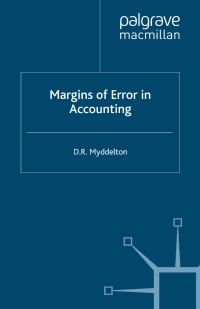Question
B. Inventory management The current policy is to order 100,000 units when the inventory level falls to 35,000 units. However, forecast demand to meet market
B. Inventory management The current policy is to order 100,000 units when the inventory level falls to 35,000 units. However, forecast demand to meet market requirements for next year is 625,000 units. The cost of placing and processing an order is R250, while the annual cost of holding a unit in stores is 5% of the unit purchase price. Both costs are expected to be constant during the next year. Shop n Pay sells a unit of the product for R15.00 at cost plus 50%. Orders are received two weeks after being placed with the supplier. You should assume a 350-day year and that demand is constant throughout the year.
C. Forecasting and other supply chain activities A recent report produced by Shop n Pays chief demand planner has revealed that the retailers reliance on simple exponential smoothing to forecast demand for its products is partly responsible for the significant bullwhip effect in the supply chain and the stock outs in the past few years. In this regard, the chief demand planner is recommending that exponential smoothing with trend adjustment (Holts Model) should be used to forecast demand for aggregate planning for the 2020 fiscal year.
Mr Msimanga has retrieved from the retailers database the following information on number of goods sold over a twoyear period. Year Monthly sales (000 units)
Jan 2018 -650 /2019 -750
Feb 2018-700 /2019 -800
Mar 2018 -820/2019-900
Apr 2018 -850/2019-920
May 2018-700/2019- 680
Jun 2018-840/2019-950
Jul 2018-930/2019-1080
Aug 2018-630/2019-742
Sep 2018-860/2019-920
Oct 2018-600 /2019 -705
Nov 2018-1050/2019 -1100
Dec 2018 - 750 /2019- 820
2.3 REQUIRED: Use the information provided above under section C:
Forecasting and other supply chain activities to answer the following questions:
2.3.1 A recent report produced by Shop n Pays chief demand planner has revealed that the retailers reliance on simple exponential smoothing to forecast demand for its products is partly responsible of the significant pile-up of goods in the companys main distribution centre.
2.3.2 Calculate the Exponential smoothing with trend component forecast (FIT) for second to the twenty-fifth month using an initial trend forecast (1) of 10 000, an initial exponential smoothing forecast (1) of 640 000 units, =0.20, and =0.30. (6 marks) 2.3.3 Plot the actual demand, the simple exponential smoothing (SES) forecast, and trend-adjusted exponential smoothing (FIT) forecast on the same graph. Briefly comment on the observed difference(s) between the plots of the two forecasts.
Step by Step Solution
There are 3 Steps involved in it
Step: 1

Get Instant Access to Expert-Tailored Solutions
See step-by-step solutions with expert insights and AI powered tools for academic success
Step: 2

Step: 3

Ace Your Homework with AI
Get the answers you need in no time with our AI-driven, step-by-step assistance
Get Started


